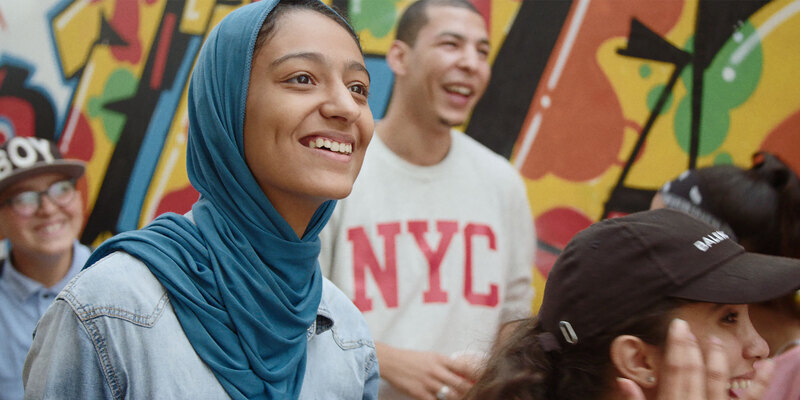
Review by
Benjamin Poole
Directed by: Nabil Ayouch
Starring: Ismail Adouab, Nouhaila Arif, Samah Barigou, Abdelilah Basbousi, Anas Basbousi
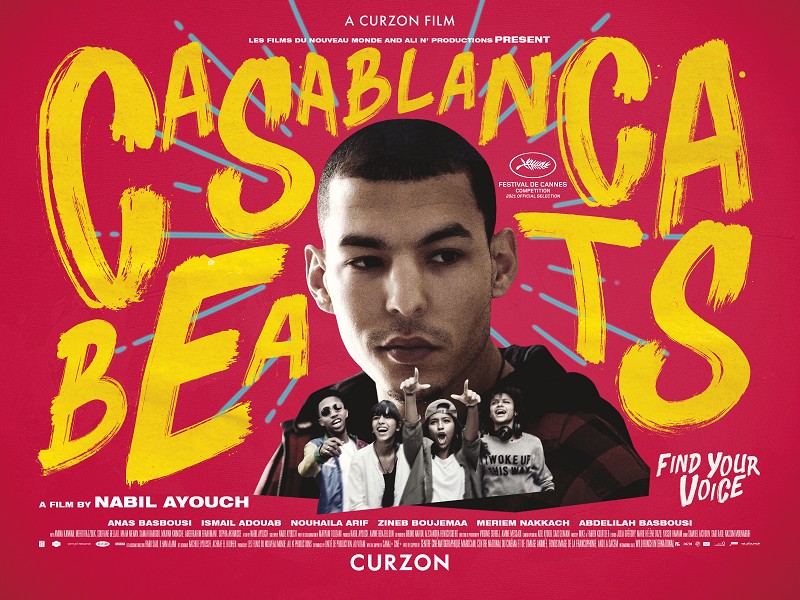
Did hip-hop save my life? Tricky to say. It’s difficult to imagine an
existence without it. Here’s the thing about being infatuated with
hip-hop, with growing up obsessed with the culture and the music: it was
an essential education. Firstly, any of those '90s albums, with their
dense collage of sample and loops and interpolations (until that snitch
Gilbert O’Sullivan went and
spoiled it all) were an entrée to further realms of musical excitements and styles. 3
Feet High and Rising uses 60 samples, Paul’s Boutique references 105
songs: any of those albums were like a mini miscellany of music in
general, introducing the naïve listener by proxy to funk and soul, but
also yacht rock and hardcore punk, with the overriding catholic credo that
this was all music, wonderful music, and it was all fair game and there
were no snide distinctions to be parsed between sounds and rhythms. It
brought culture closer, made it all seem so accessible. And evidently,
hip-hop was (and still can be) instructive in other, more important ways
too; as Black CNN (©Chuck D), a view upon the world which Overton’s window
pointed away from, offering an urgent representation of American black
experience (let’s not forget MTV’s shady history of not featuring black
artists
throughout its first decades.) Congruously, there is the abiding importance of hip-hop as an
accessibly creative force, the ethos that with the right passion and will
to commit, anyone can turn their hand, voice, body or mind to one of the
five pillars. There is no other music where the bond between culture and
art is so immediate. If hip-hop did not save my life, then it enhanced it
beyond measure.
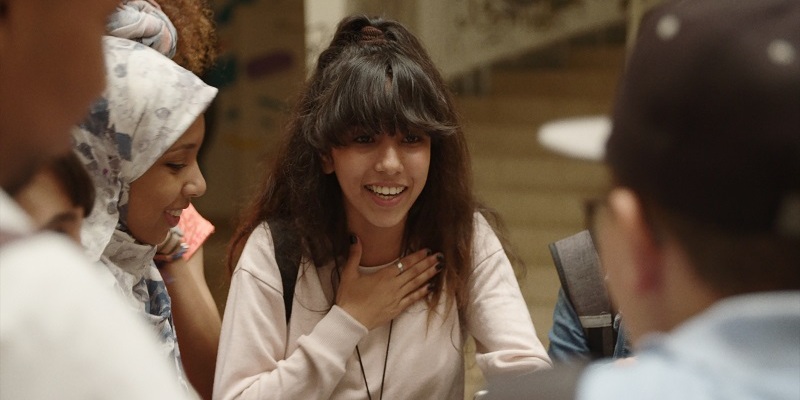
Hip-hop as salvation is a credo which pulses deep within
Nabil Ayouch (director, screenplay) and Maryam Touzani’s
(co-writer) Casablanca Beats’ big bass heart. In this Moroccan set drama, Anas (Anas Basboussi, irl performer Bawss: impossibly handsome) is an ex-rapper who rocks up
at a community art centre to kick the truth to the Maghrebi youth, via
tuition of hip-hop stylings. His class is a motley group of potentially
talented but unprivileged children across a range of ages, both male and
female, who come together to write, beatbox, dance and create music.
Casablanca Beats is a reassertion of hip-hop as a unifying
force and an important artistic conduit. Although there are plot
concessions in the film - Anas comes up against a stuffy headmistress
figure, homelives are restrictive - essentially
Casablanca Beats forges a narrative rhythm from scenes of
the (utterly charming) kids as they perform, mess up, and, crucially,
realise their capacity through dedication and trust (a lovely visual touch
is how the class slowly fix up throughout the film, with their D.A.I.S.Y.
Age drip and the hair gradually getting smarter/flyer as the self-respect
increases).
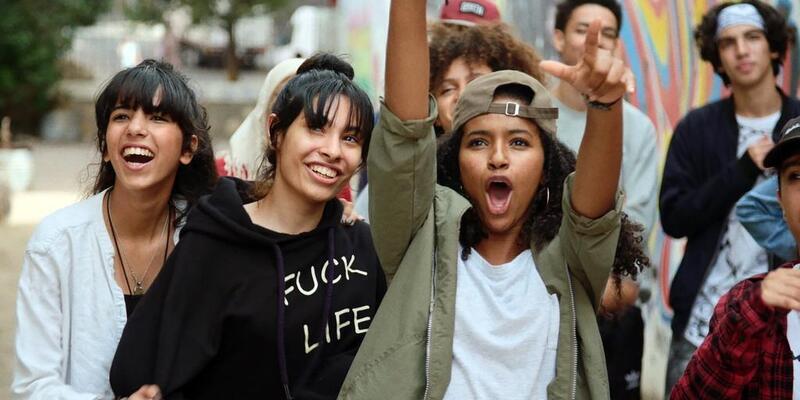
It's consistent, too, that within a film so based upon hip-hop culture,
Casablanca Beats seems to sample tropes from similarly
themed movies: Sidi Moumen is akin to the dance-phobe town in
Footloose with its conservative approbation towards the
rappers; the joyously innocent sequences of kids killing it in the music
room recall School of Rock; and the end has a lovely kids from Fame feel (a film
that, it bears reiteration, in its pre-telly incarnation was gritty AF).
Why not? The shared culture is for everyone, and
Casablanca Beats uses these available tropes to set its own
cadences, to forge its own idiosyncrasy. Furthermore, while pop culture
may be open to all, an underlying theme of
Casablanca Beats is the restrictions which these children
otherwise face, from societal hegemonies to religion, family et al.
Hip-hop, immediate and kinetically expressive, is a tool of empowerment
here, with the performed rhymes referencing how the kids see themselves
within the communal contexts of Casablanca. Musical daydream sequences
visualise both the fresh ambition of the class, and their desire to
actualise. The personal becomes political.
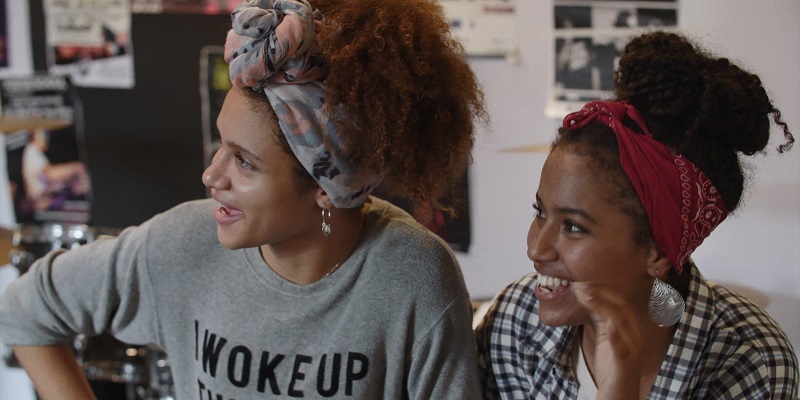
A postscript: after the screening of Casablanca Beats, I was fortunate enough to see a Q&A about the film and hip-hop
culture in general. One of the guests was the great Jason Camilleri, a man
whose importance to the Welsh rap scene cannot be overstated. There was
discussion about how, due to the gatekeeping of major labels with
commercial agendas and vested ideologies, the music has wandered from its
subversive roots, and the ability to educate along with entertain (via his
work with young people, Camilleri is a real-life Anas). Within this loaded
framework, a film like Casablanca Beats, with its focus on music as enlightenment and inspiration and salvation,
becomes vital.

Casablanca Beats is on UK/ROI VOD
now.

